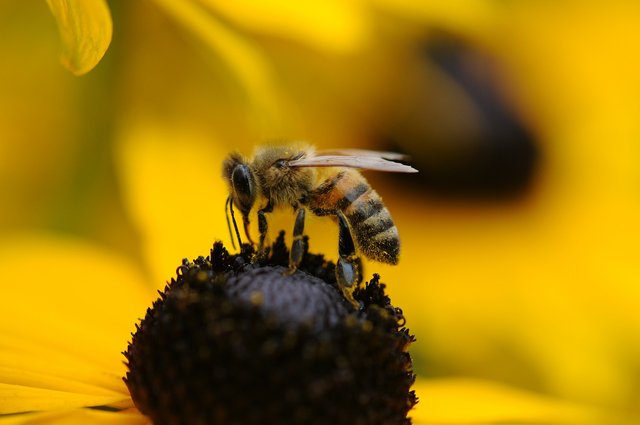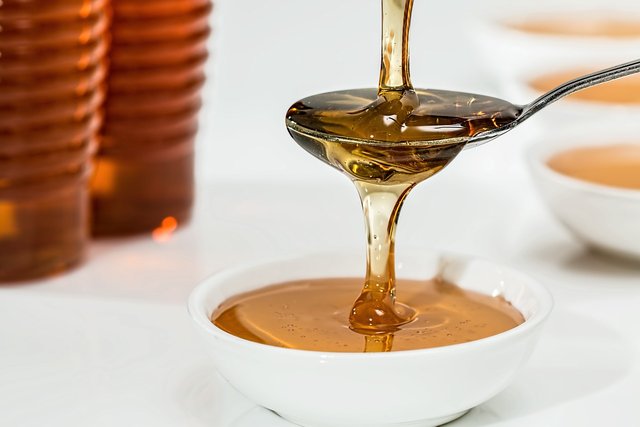Pesticides Found In 75 Percent of Honey Samples From Around The World

A recent Swiss study that analyzed honey samples from around the world, has found that roughly 75 percent of the samples contain a harmful pesticide that is thought to have played a significant role in the decline of bee populations.
From all of their honey samples, 75 percent had contained at least one neonicotinoid, 45 percent of them had contained 2+, and 10 percent contained 4-5 neonicotinoids.
Researchers say that they find the results to be alarming and they say that the levels of harmful substances that they found are significant enough to potentially affect the brain function of bees, as well as hindering their ability to forage and pollinate.

The researchers noted that the samples they had collected for their study come prior to a partial ban that was placed relating to the use of the neonicotinoid chemicals that they are concerned about.
And to better understand the impact of that and more about this problem, they suggest that further research is needed in this area.
There are a variety of areas that have sought to establish a ban on the use of the neonicotinoid pesticide. One of those areas is Europe, where they previously imposed a temporary ban a few years ago on three key neonicotinoids, and since then more pressure has been focused on pushing to further extend that measure.

For their recent study, they had collected samples from six continents. And the honey samples from South America that htey had collected, were said to have the lowest concentrations of the neonicotinoids.
Overall, for their analysis the researchers had collected roughly 198 different honey samples from every continent except Antarctica. Though, critics of the study say that the sample size was too small.
As far as the levels of chemicals that were found in the honey, scientists say that they are lower than the maximum threshold that's permitted for human consumption. And they say that for those who consume honey that they shouldn't be worried about these findings. Researchers affirm that their biggest concern is for the world's pollinators and what damage these pesticide chemicals might be inflicting on them.

Pics:
Pixabay
Giphy
Sources:
http://www.wpxi.com/news/national-news/ap-top-news/not-so-sweet-75-percent-of-honey-samples-had-key-pesticide/620077169
https://www.thelocal.ch/20171006/swiss-study-says-bee-harming-pesticides-present-in-75-percent-of-honey-worldwide
http://www.bbc.com/news/science-environment-41512791
http://www.bbc.co.uk/news/science-environment-40382086
https://www.theguardian.com/environment/2017/mar/23/europe-poised-for-total-ban-on-bee-harming-pesticides
https://www.fginsight.com/news/dont-miss/76-per-cent-of-brits-want-full-ban-on-neonicotinoids-25514
Related Posts:
Scientists Develop Pollinating Drones To Serve In The Event Of Honey Bee Extinction
A Groundbreaking New Way To Watch Over Bee Populations
https://steemit.com/science/@doitvoluntarily/a-groundbreaking-new-way-to-watch-over-bee-populations
Thank you for sharing this important information. Nature is so capable to sustain itself that I find unbelievable that human beings just don't consider its rules, and just goes doing whatever it takes to earn more and more money. Not everyone of course. But a lot of us just aren't aware of the meaning of facts like this one.
Sir i am having problems browsing steemit are you also having the problem ? any news ?
DOS attacks
things are back to normal now
Still not quite 100% - I was having some problems a couple of hours ago - but it seems to be OK now so fingers crossed
hmm
This post received a 75% upvote from @krwhale thanks to @hassanabid! For more information, click here!
이 글은 @hassanabid님의 소중한 스팀/스팀달러를 지원 받아 75% 보팅 후 작성한 글입니다. 이 글에 대한 자세한 정보를 원하시면, click here!
Nice Photo and keep it up 💙
This is a huge problem.
Food crops like corn, wheat and rice are wind-pollinated or self-pollinating but almost all fruits and vegetables are pollinated by bees. Bees are conected with 30% of our food. No bees - no food for 6 billion people.
I whached this TED talk last month :
Why bees are disappearing
here:
https://www.ted.com/talks/marla_spivak_why_bees_are_disappearing
or here:
it is only 15 min but very interesting and important mesage...
I remember watching this
this post is grate, thanks for the good work.
Pollinators are more important and integral to the ecosystem than we may be led to believe. There was this article in Time once about how bees are going extinct and if they do it will be the end of the world as we know it.
Anyone that buys "honey" from China has to be crazy... who knows what's in that stuff.
There are some new Indian brands too - ie dangerous ones!!!
Great post. I invite you to my profil. I'm beekeeper ; ) Upvote and resteem
**biggest concern is for the world's pollinators **
I’m glad the amounts aren’t harmful for human-consumption; however, there are many benefits to buying organic honey locally.
Many people attest to healing of allergen toxicities by consuming honey which was collected from local hives.
Thanks for sharing this informative post!
Peace.
An excellent succinct piece that draws attention to the sad examples of our destructive practices on the ecological systems that govern all life